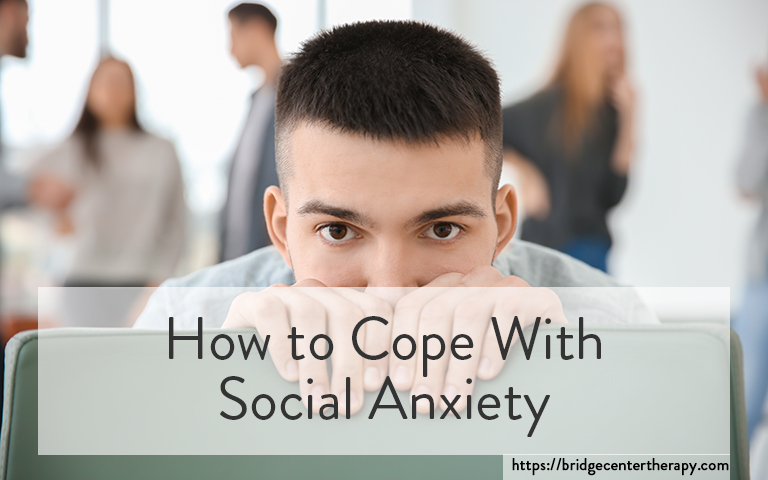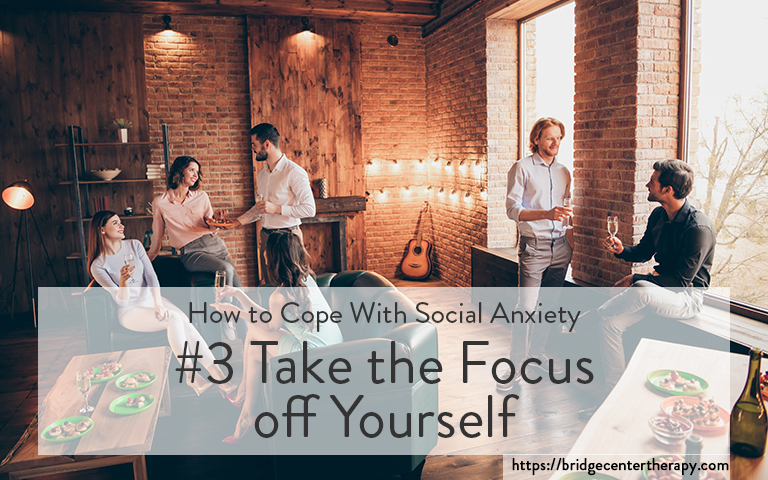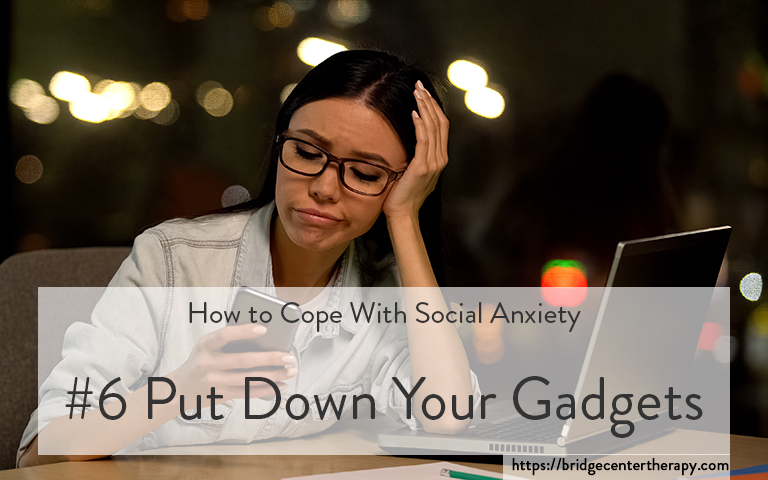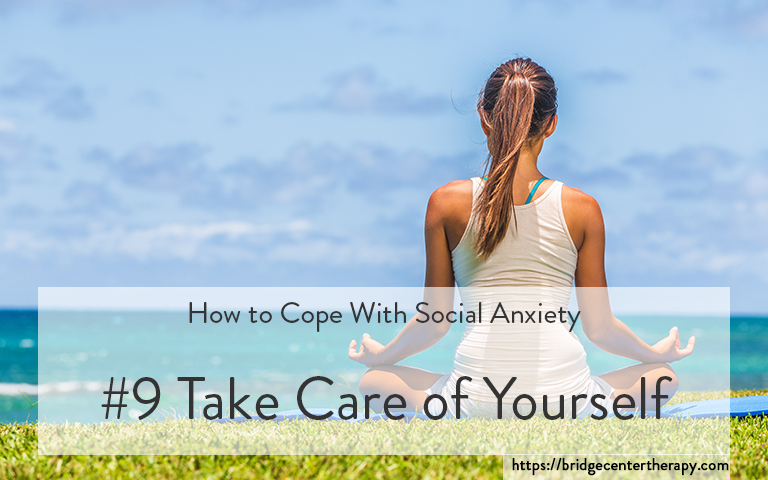
The change from having a high social life to nothing at all can be detrimental to your mental health. Isolation is emotionally draining and can feed into social anxiety.
As you begin to socialize more in person this season, here are some tips to help you.
1- Start Small
Try going out of your way to make eye contact with people in the street to start. You don’t have to face your biggest fears right away. Too much too soon can actually cause more anxiety.
Speak to one of our therapists today.
2- Create an Exposure Hierarchy
Identify and rate how each social situation makes you feel in terms of anxiousness. Write it down, so when the experience happens, you know how you thought you’d feel.
3- Take the Focus off Yourself
Shift your attention to what is happening around you instead of inside your head. Really listen to conversations. Remind yourself that people probably can’t tell you’re anxious.

Avoidance can prevent you from doing the things you like or reaching certain goals. Take it one small step at a time. Once you’re comfortable with that step, move on to something slightly more challenging.
5- Keep Your Boundaries in Check
Make your preferences known if you think you will tire out easily or become overwhelmed. Communication is now more important than ever.
Too much screen time can lead to increased anxiety levels. Keeping yourself updated is good, but doom scrolling has a negative impact on your anxiety.

7- Do an Activity
Do something you like and feel comfortable with in a environment that would usually make you anxious. That way, you can push yourself but remain in your mental comfort zone at the same time.
8- Learn to Control Your Breathing
Many distressing changes happen in your body when you become anxious. Hyperventilation leads to dizziness, increased heart rate and muscle tension. Slowing your breathing can control these physical symptoms.
Prioritizing your physical health, learning breathing exercises, developing self- reflecting practices and talking to friends and family about your worries are all parts of anxiety management.

10- Remember that Your Feelings are Normal
This is a strange time for us all. Even people who don’t generally have social anxiety are finding it disorienting. Give yourself some grace as you navigate your new normal.
Need Help? We Can Help.
If you have tried to assimilate but anxiety and panic are interfering with your ability to do so, it may be time to reach out to a mental health professional.
Do you need anxiety and stress counseling? Call (510) 497-4174 to schedule your free consultation today.
If you have any questions or require more information, please contact Lani here: lani@bridgecentertherapy.com
